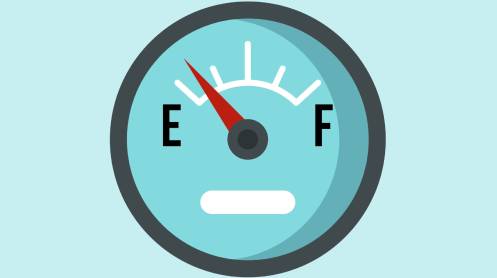ISLAMABAD: In the wake of increasing reliance on imported gas, Pakistan is left with no option but to go fresh long-term LNG import agreements at the GtG level with LNG-producing countries as the existing two import deals with Qatar may go in jeopardy in 2026 because of revision of the price cap clause that is due after 3 years. Under the agreements, Qatar, the LNG supplier, could demand in 2026 an increase in the LNG delivered price or just walk away from the existing contracts.
The state-owned Pakistan State Oil (PSO) inked a 15-year long-term agreement with Qatar in 2016 at 13.37 percent of Brent with a clause to revise gas price after ten years in 2016. It signed another for a 10-year contract with Qatar in 2021 at 10.2 percent of the Brent with a closure to open the price cap after 5 years also in 2016. The Pakistan LNG Limited is also in agreement with a 15-year term agreement with ENI.
The country’s natural gas production is forecast to shrink alarmingly to 2.306 bcfd by 2030. The current gas production stands at 3.2 bcfd which was at 4.2 bcfd in 2012.
However, the balance of recoverable reserves reached the level of 20,951 Billion Cft in 2021 from the original recoverable reserves of 63,311 Billion Cft.
That is why, Pakistan is needed to expedite the proacess of entering into fresh long-term LNG import contracts starting from 2025-26.
This has been recommended in “Pakistan Natural Gas: Policy Issues & Way Forward” report by the Energy Planning Resource Center (EPRC), Ministry of Planning, Development and Special Initiatives. In the report, ex-prime minister and chairman of Energy Task Force Shahid Khaqan Abbasi has also contributed his valuable input.
According to Abbasi, China has just inked a fresh agreement for LNG import with Qatar for 27 years and likewise, Bangladesh has signed a 15-year long agreement with Qatar to be effective from 2025. Pakistan also needs to initiate the negotiation for fresh LNG long terms deals.
The report also asked for introduction of a cost-reflective gas pricing regime that delivers the actual cost of LNG to its end consumers. Consumer prices should be revised regularly to bring them at 6 par with LNG delivered cost. The budgeted subsidy initiated in the gas sector should be continued to reduce differential accumulation. The Planning Commission has also stressed for development of Gas storage to store the imported RLNG.
The EPRC report pinpoints future projections of LNG imports considering the seasonal variations in consumption, which show a sharp increase in the coming years. Based on peak demand in winter months like January, the country will need to import over 1,900 MMCFD by 2030. The net available supply for gas by 2030 is expected to be 3,828 MMCFD.
Pakistan has also wasted 5 years, 3 years and 8 months by the PTI government and the remaining period by a coalition government led by Prime Minister Shehbaz Sharif, and failed to develop more LNG infrastructure to import LNG. Now a new LNG terminal has been set up and no more pipeline from Karachi to Lahore has been laid down. However, the report has recommended a new LNG terminal of capacity to re-gasify 600 mmcfd LNG. Currently, Pakistan imports 75 percent of LNG through term contracts and 25 percent through spot purchasing. Consequently, 09 cargoes per month of LNG are purchased through term. Considering the demand, 03 more cargoes per month are procured through spot purchasing. At present, Pakistan has only two LNG terminals located at Port Qasim with a combined capacity of about 1,200–1,400 MMCFD to manage the current LNG import. However, the government has purchased the capacity to re-gasify 1.2 bcfd in the two terminals. The report also suggested the government to set up an LNG trading company like the companies established by other governments in the globe that are involved in LNG and gas procurement with a shield against the impacts of short, medium, and long-term price fluctuations and sustainability in the natural gas supply chain. Globally, several countries are benefiting from the concept of gas trading companies, including India’s GAIL India Limited, China’s Sinopec Shanghai Petrochemical Co. Ltd., Korea’s POSCO International, and Japan’s JERA. Gas trading companies could be beneficial in situations like Covid-19 when natural gas and LNG prices were reduced to unprecedented low values and the first quarter of 2022 when the Russo-Ukrainian war resulted in historic inflation in energy prices.







